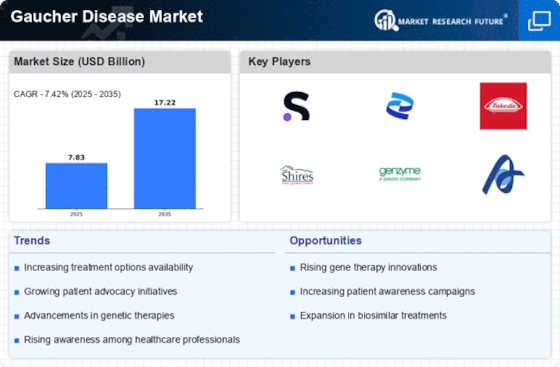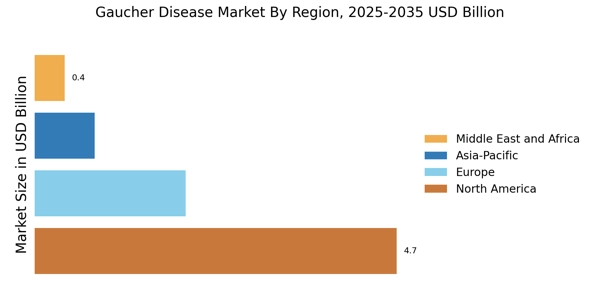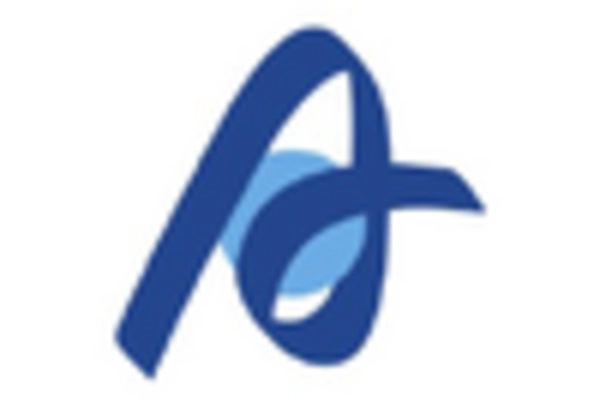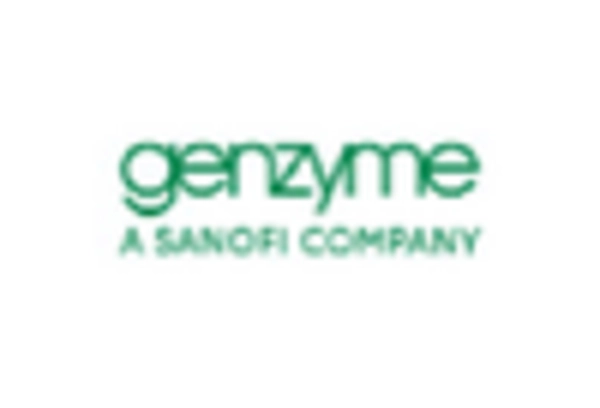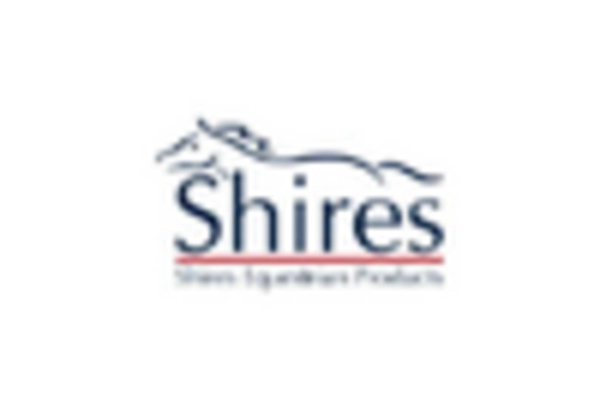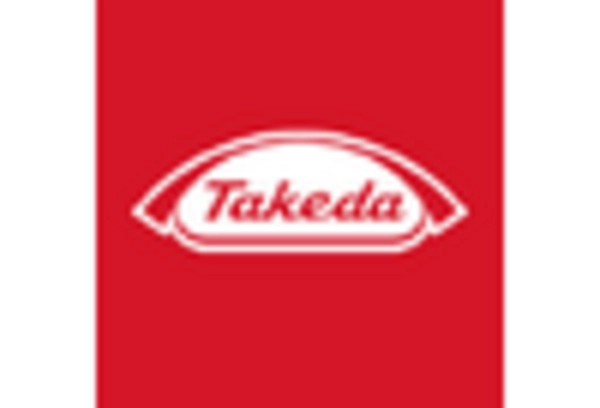Regulatory Support for Orphan Drugs
Regulatory support for orphan drugs is emerging as a vital driver in the Gaucher Disease Market. Governments worldwide are implementing policies that incentivize the development of treatments for rare diseases, including Gaucher Disease Market. These incentives may include tax breaks, extended market exclusivity, and expedited review processes, which can significantly reduce the time and cost associated with bringing new therapies to market. As a result, pharmaceutical companies may be more inclined to invest in the development of innovative treatments for Gaucher Disease Market, thereby expanding the available therapeutic options for patients. This supportive regulatory environment is likely to foster growth within the Gaucher Disease Market.
Rising Prevalence of Gaucher Disease
The increasing prevalence of Gaucher Disease Market is a notable driver in the Gaucher Disease Market. Recent estimates suggest that Gaucher Disease Market affects approximately 1 in 40,000 to 1 in 60,000 individuals, with higher rates observed in certain populations, such as Ashkenazi Jews. This growing patient population necessitates enhanced treatment options and healthcare resources, thereby stimulating market growth. As awareness of the disease expands, more individuals are likely to seek diagnosis and treatment, further contributing to the demand for therapies. The rising prevalence not only highlights the need for effective management strategies but also encourages pharmaceutical companies to invest in research and development, ultimately benefiting the Gaucher Disease Market.
Increased Focus on Personalized Medicine
The increased focus on personalized medicine is shaping the Gaucher Disease Market in profound ways. Personalized medicine aims to tailor treatments based on individual patient characteristics, including genetic profiles and disease manifestations. This approach is particularly relevant for Gaucher Disease Market, where variations in disease severity and response to treatment can vary significantly among patients. As research continues to uncover the genetic underpinnings of Gaucher Disease Market, the potential for developing targeted therapies increases. This shift towards personalized treatment strategies may enhance patient outcomes and satisfaction, driving demand within the Gaucher Disease Market. Consequently, pharmaceutical companies are likely to prioritize the development of personalized therapies, further propelling market growth.
Advancements in Enzyme Replacement Therapy
Advancements in enzyme replacement therapy (ERT) represent a critical driver for the Gaucher Disease Market. ERT has transformed the treatment landscape for Gaucher Disease Market, providing patients with effective management options. Recent innovations have led to the development of more efficient and targeted therapies, which may improve patient outcomes and adherence to treatment regimens. The introduction of new formulations and delivery methods could potentially enhance the therapeutic experience for patients. As the efficacy of these therapies continues to improve, the market for Gaucher Disease Market treatments is likely to expand, attracting both established and emerging players in the pharmaceutical sector. This trend underscores the importance of ongoing research and development in the Gaucher Disease Market.
Growing Investment in Rare Disease Research
The growing investment in rare disease research is a significant driver for the Gaucher Disease Market. Governments and private organizations are increasingly allocating funds to support research initiatives aimed at understanding and treating rare diseases, including Gaucher Disease Market. This influx of funding facilitates the development of novel therapies and encourages collaboration among researchers, healthcare providers, and pharmaceutical companies. As a result, the Gaucher Disease Market is likely to witness an increase in innovative treatment options, which may enhance patient care and improve health outcomes. Furthermore, this investment trend may lead to the establishment of specialized centers for rare diseases, further bolstering the market's growth.


